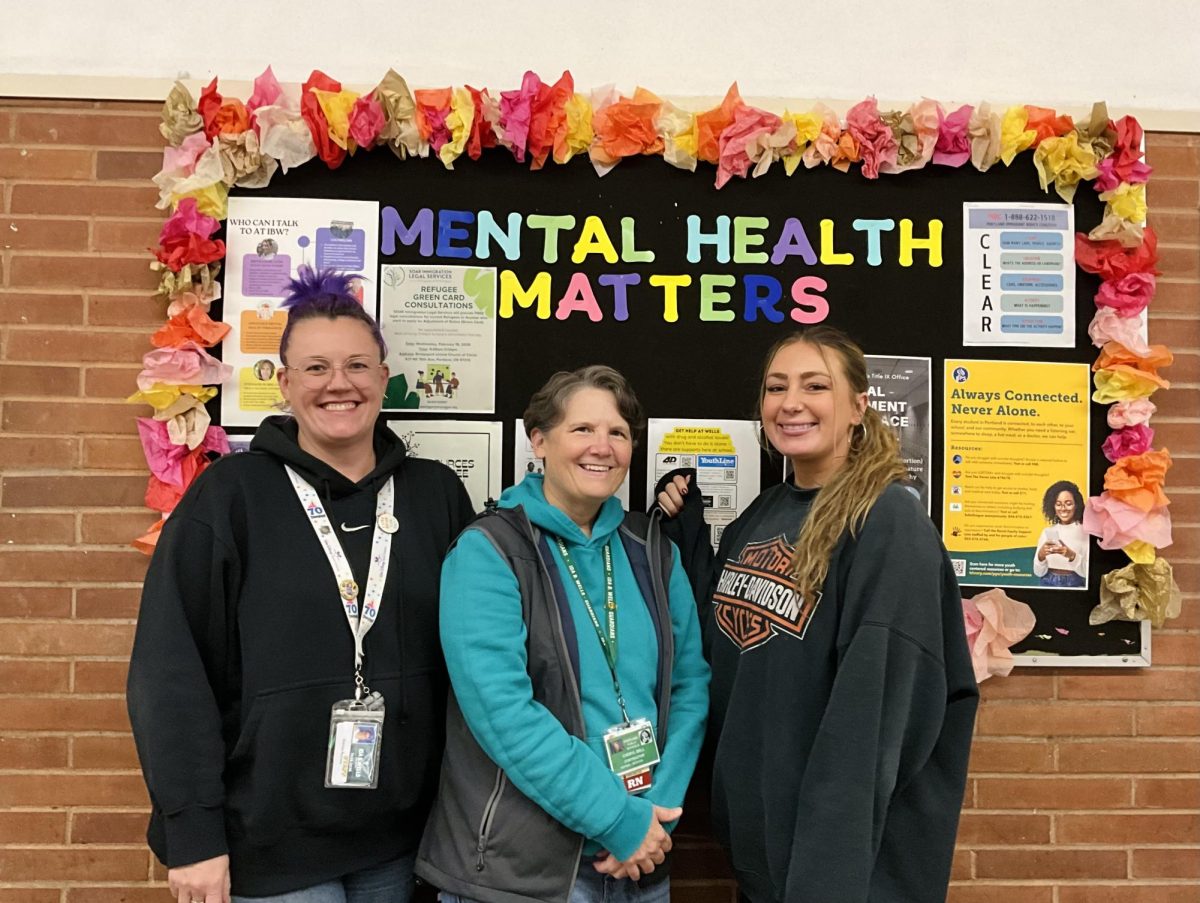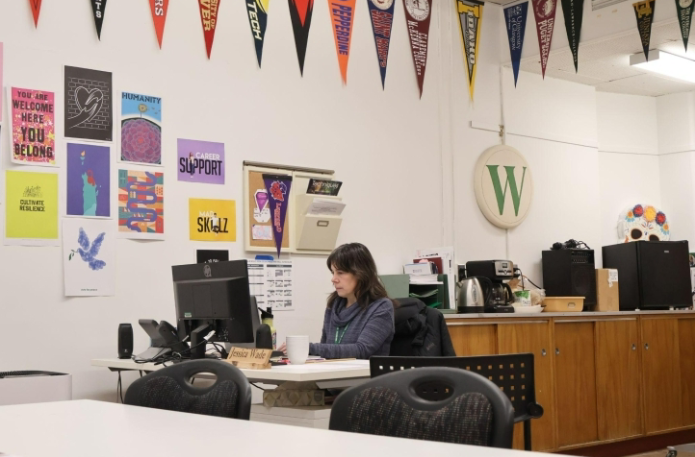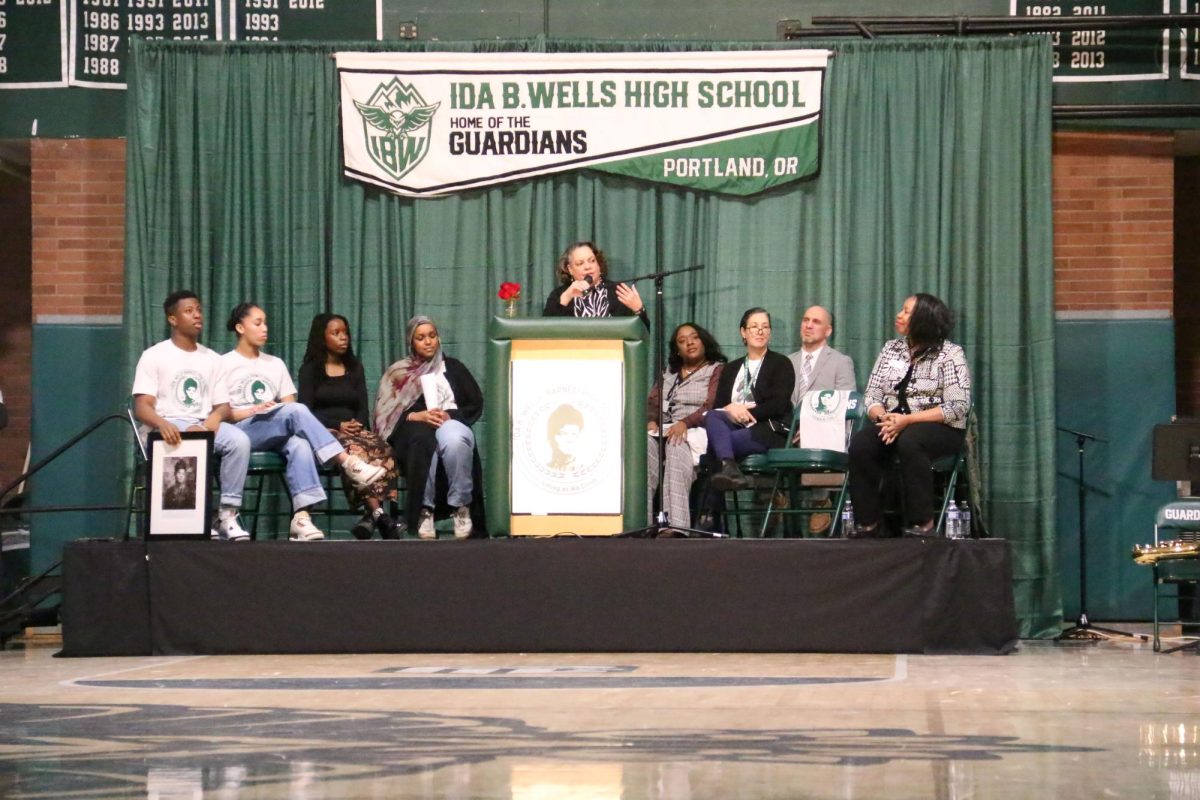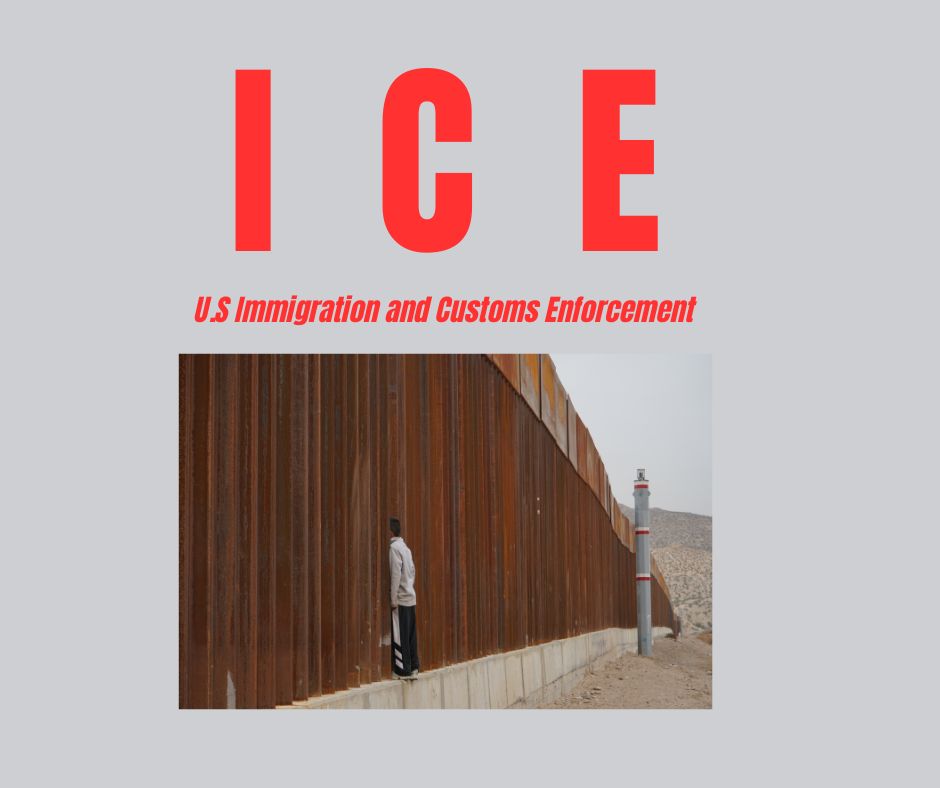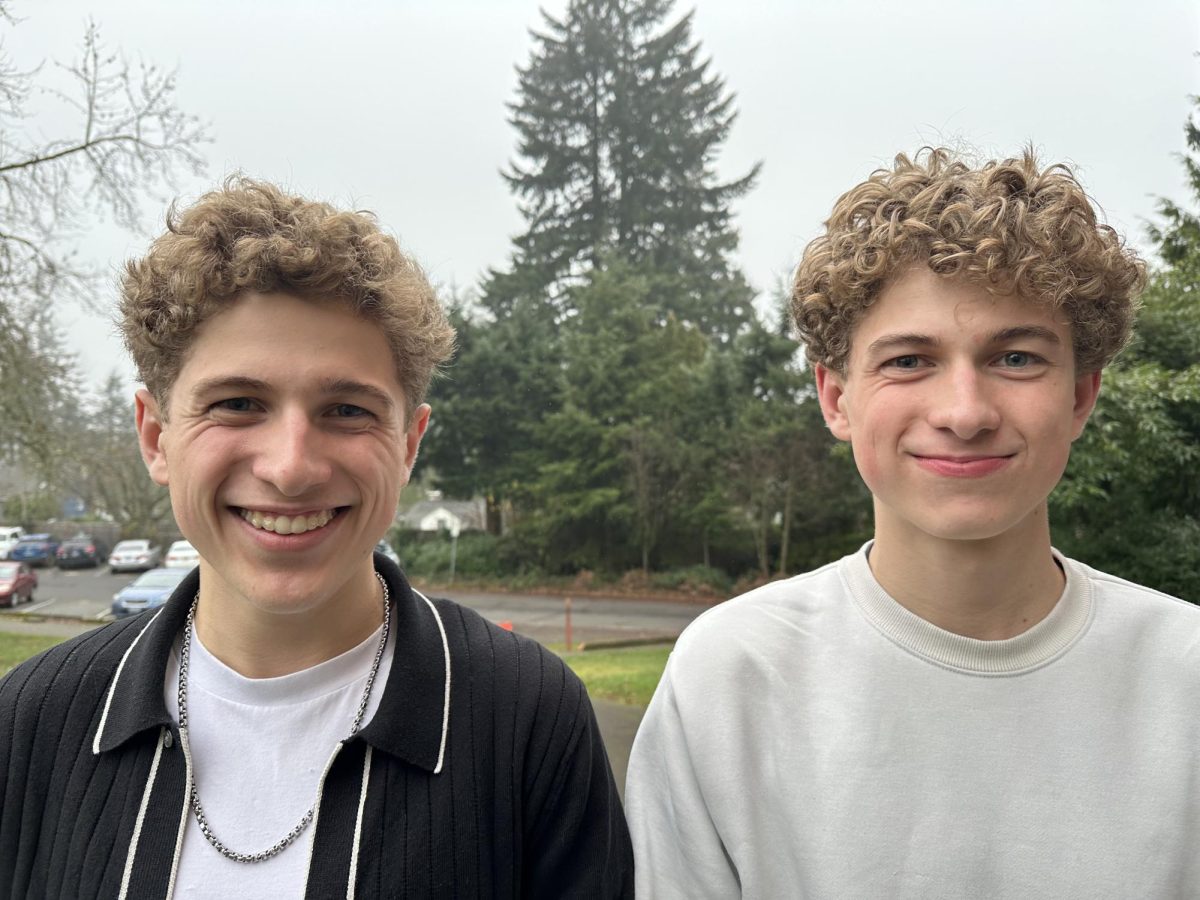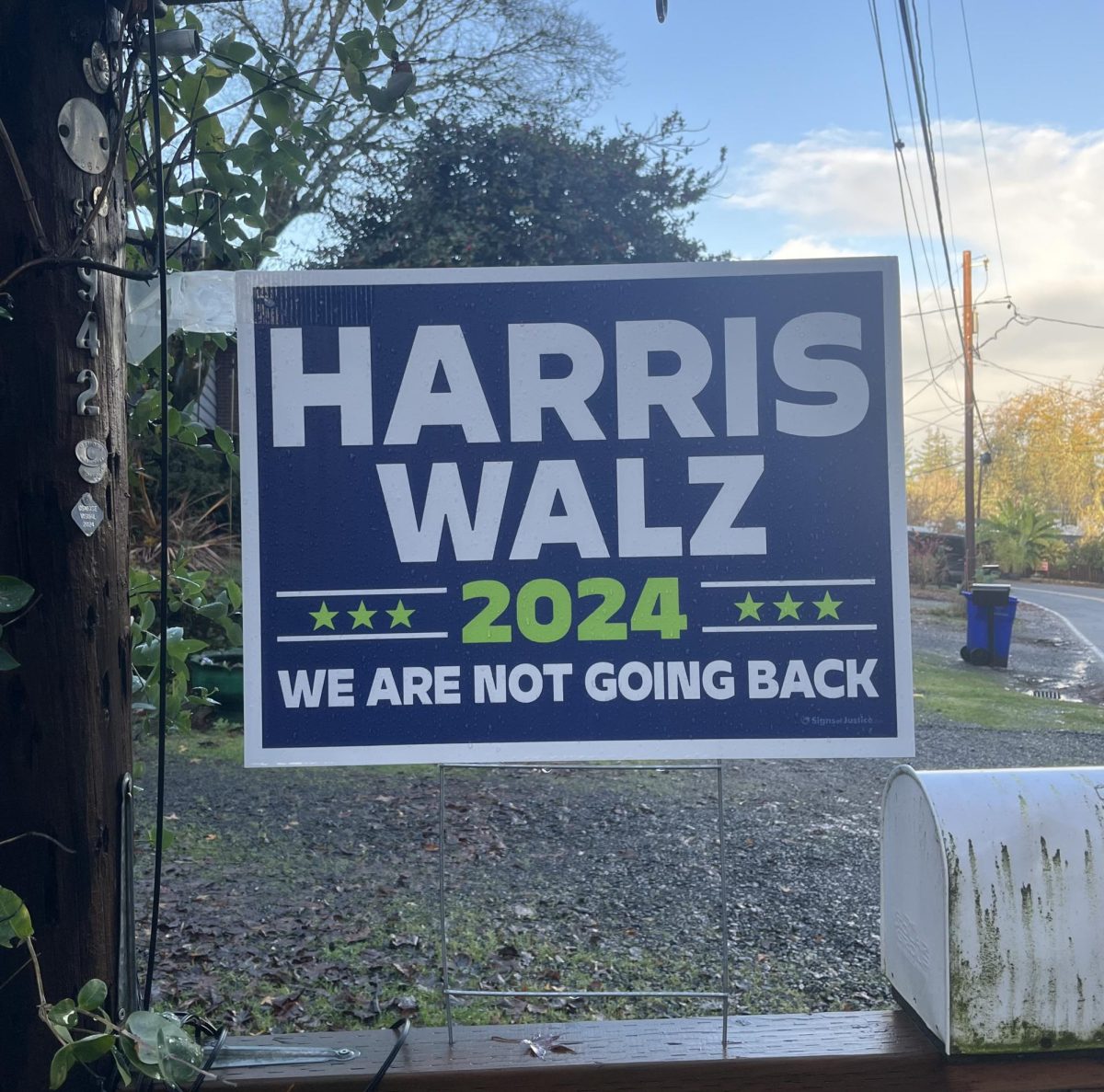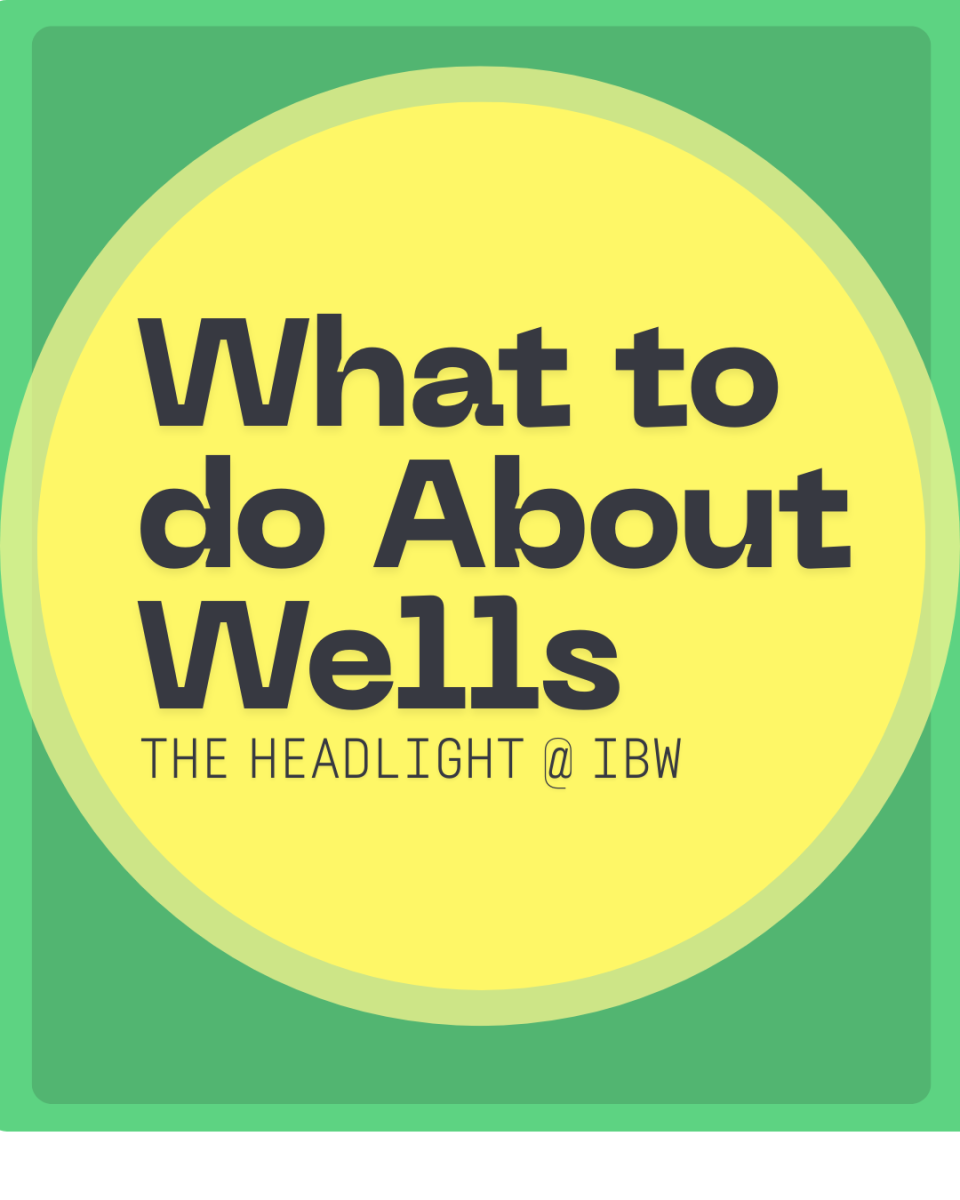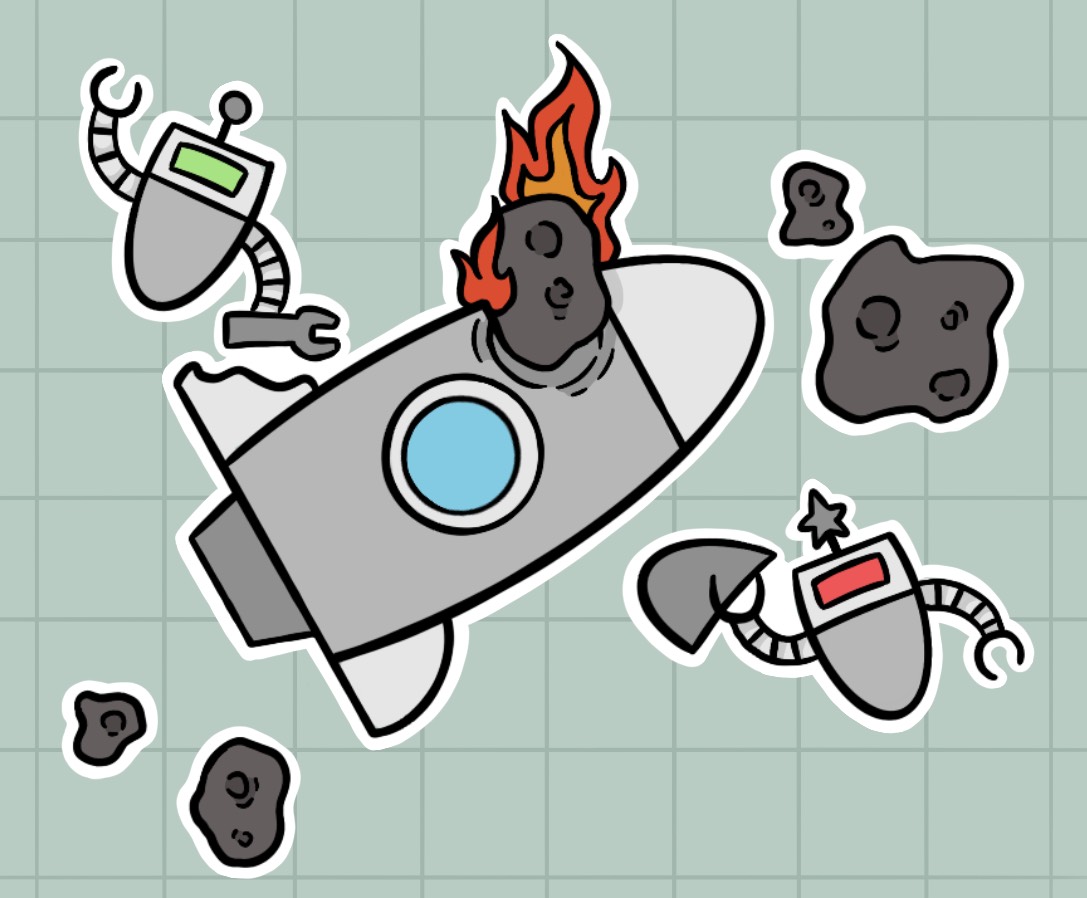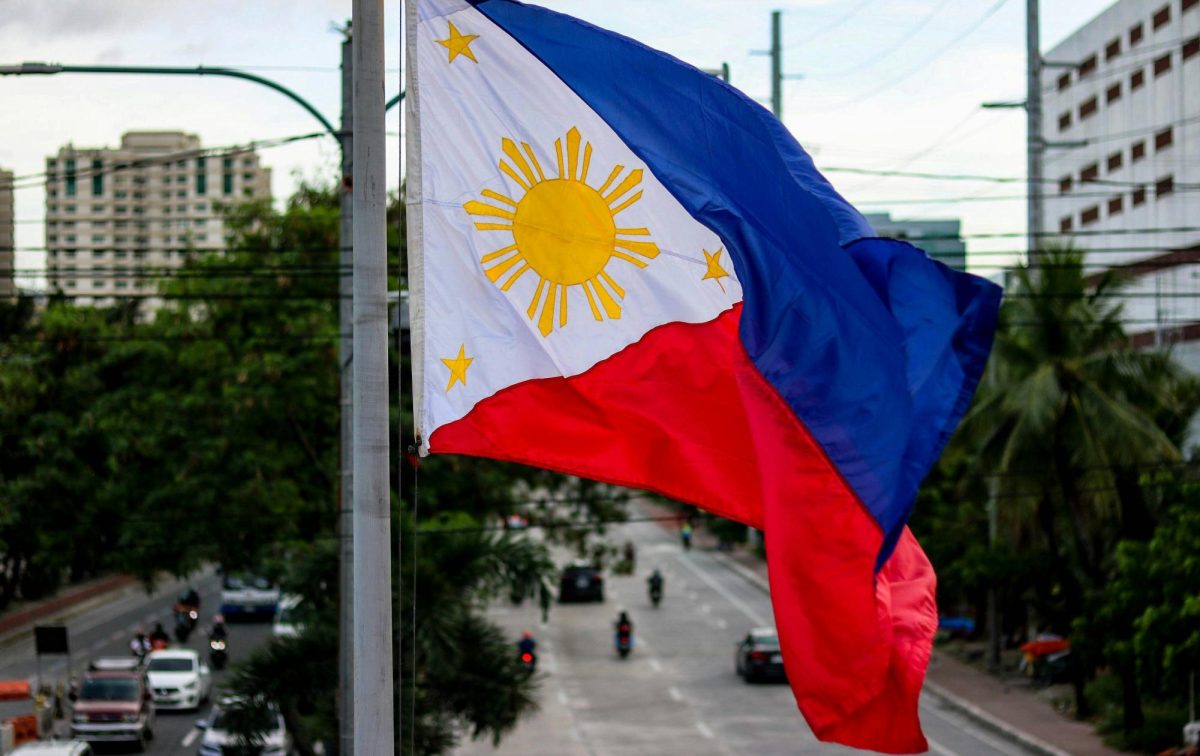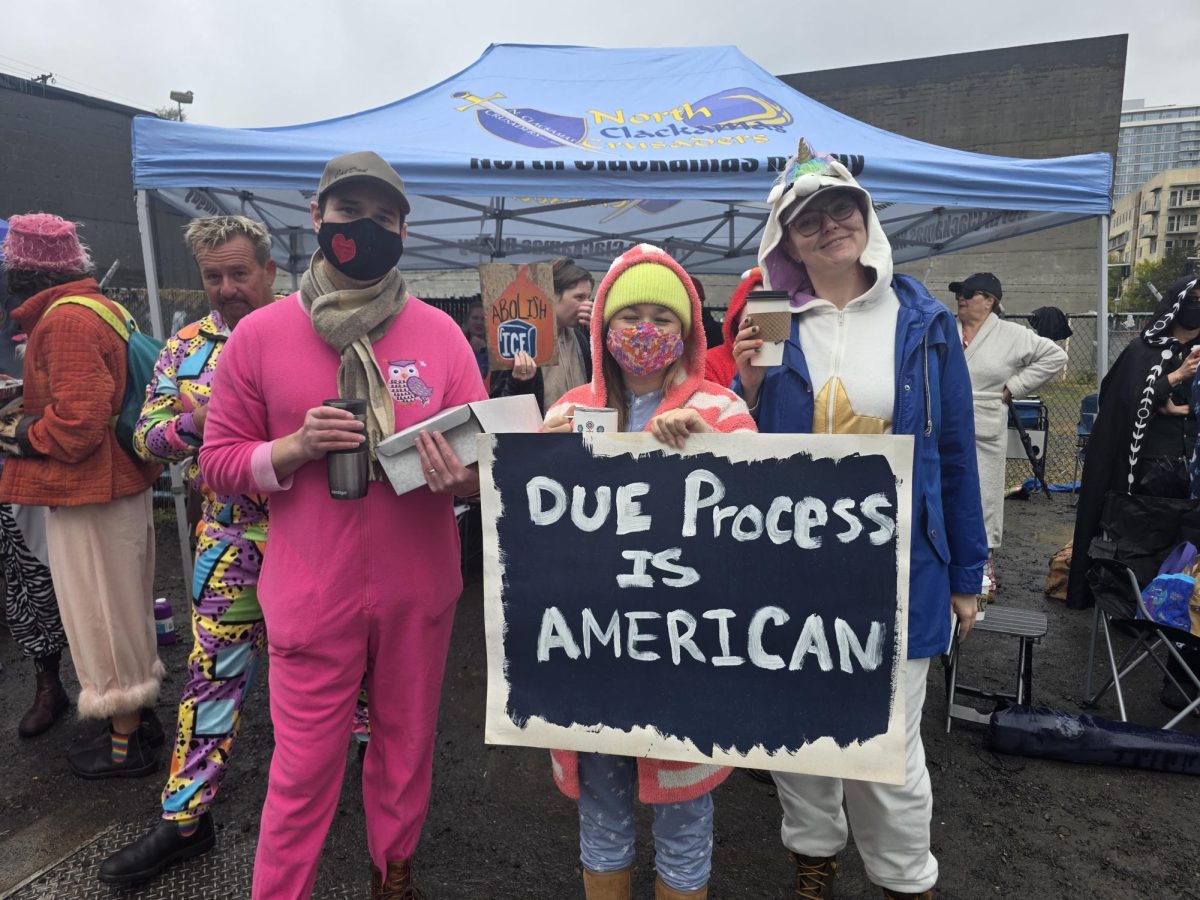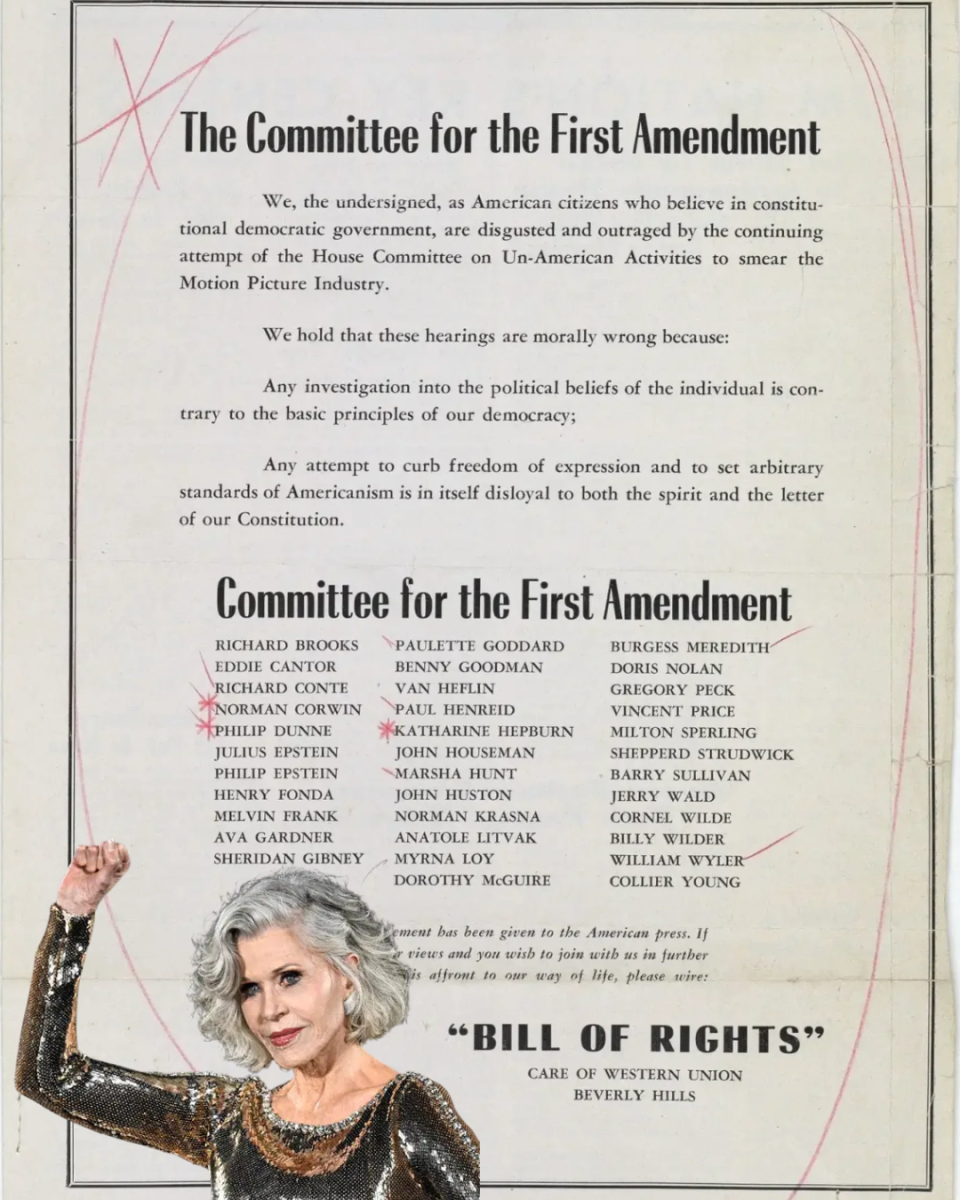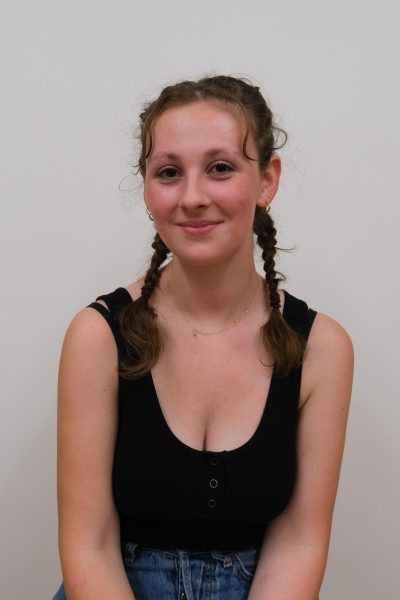“We know that, sadly, violence happens in our communities and so we’re here to support students who have experienced that,” said Katie Mahaffie, Ida B. Wells’ new confidential advocate.
High school is a time of immense change and unknown factors that equate to students needing support systems and resources available to them. At Ida B. Wells High School, there are multiple resources available to students as they need them. Some of these resources are new to the school this year, including our new confidential advocate, Katie Mahaffie.
Mahaffie is one of three confidential advocates in Portland Public Schools and she directly helps the students at Ida B. Wells, Lincoln and Roosevelt High School. This is her first year serving the students in PPS, however, she has been working with primarily high school students for the past eight years.
“I think from my own personal experience in high school,” Mahaffie said. “I could have really used an adult just to validate my experiences a little bit more, and tell me, you know, give me some guidance and mentorship.”
As a confidential advocate, Mahaffie offers something much different than every other adult in the school; what you disclose to her, she legally cannot report—hence the term, confidential. Mahaffie says, “I have done 40 hours of training through my agency, which is a domestic violence agency, and I have the status of ‘confidential advocate.’ So it’s pretty much the complete opposite of mandatory reporting,” she said. “With confidential advocacy, it’s really like, we can talk about things so openly and we can process what we then want to do about it.”
It’s important to understand the difference between a mandatory reporter and a confidential advocate as a high school student.
Mandatory reporters are almost every adult in the school building and many healthcare workers, for more information about who is a mandatory reporter and what that process can entail you can look here. They are under a legal obligation to report the things you disclose to them when it comes to the harm of yourself or others. Reporting can mean a multitude of things including going to administrators, making a report to Title IX, getting parental involvement, or reporting directly to Child Protective Services, depending on the situation.
Alternatively, confidential advocates are under a legal obligation not to report the information you disclose to them. They cannot share any of the information you give to them and they are often present in school buildings or on some crisis lines as a way to help people process events or situations that they are in without the pressure of knowing the situation will be escalated.
There have been studies, including one by the American Federation of Teachers, showing that mandatory reporting can cause more harm than good in some situations. Mahaffie said that this is where her work can become a useful and important tool, “confidential advocacy is just a really wonderful program and really incredible space for people to do more processing before it gets to a point where it has to be escalated to something, or it never has to be escalated to something.”
However, there are times when students want to make a report. In these cases, they would go through Title IX, a federal law that requires schools to have procedures in place for students who report sex-based discrimination in schools, including sexual assault and misconduct.
Ayesha Coning, Principal at Ida B. Wells High School, has been the Title IX liaison at Ida B. Wells for the past four years. This year, however, there has been more of a delegation of responsibilities among the administrators. This is to allow for more time and energy spent on helping students, according to Coning. Vice Principal, Dr. Sara Gandarilla will be the point person for 9th-graders, Vice Principal Jill Altman will take on cases at the 10th-grade level, Vice Principal Scott Burns will be responsible for 11th-grade cases, and Principal Coning will continue to work with cases for 12th graders.
However, Coning says these can be fluid roles and said, “Since I’ve managed Title IX incidents for the last four years, if there’s a really complicated situation then I’ll lean in across all the grade levels.”
Beyond people at the administration level, Coning said, “Any adult, any teacher, and any counselor, if a student feels like they have a trusted, positive relationship with that adult is also a resource and a mandatory reporter.”
After reporting to an adult in the school building, the next steps differ from case to case depending on the urgency, intensity, and what students would like to do. And while Mahaffie is not a formal part of the Title IX process, she said, “I can be like a first step. If students want to go ahead and report to Title IX we can do some of that processing together,” she said. “We can do a little research around like the different consequences, both good and bad, could be, and I can kind of work through that with a student.” Additionally, Mahaffie said that she would be a continuous support for students going through the reporting and Title IX process.
Coning explains some of the different options and steps that may be taken after an initial report. When the situation is student-to-student, these steps can include a stay-away agreement, which can act as a first step in many situations, there can also be a no-contact order which is more restrictive for all parties involved. Beyond these steps, the case will go to the district level and an investigation may start from there.
“It’s so hard to make a general statement when they’re all different,” Coning said. Depending on the situation, however, the options for what can be done differ. “If an adult is harming a kid, then actually the kid may not have much of a choice. If it’s peer-to-peer, then the kid has more choice.”
While reporting is a step that some students want to pursue, this may not always be the case. “In my experience working with young people for quite a few years now, they know that, you know, reporting is not always what they want to do,” Mahaffie said. “And especially for students of marginalized identities, like there is a potential for great harm to come from making these reports.” This can be where Mahaffie’s role, as a confidential advocate, can be a valuable option. “Knowing that there is an option of like a first-line defense, almost, and like there is another option where they can get support and talk to someone about these things without the fear of like, ‘okay, now this is just going to escalate and it’s out of my control and out of my hands,’” she said.
Knowing that there is a space for students to go where they have complete control of their story can be really essential for people in any type of situation. “No problem is too small,” Mahaffie said. “I work from a prevention framework and so preventing violence or further escalation of whatever might be happening in someone’s relationship, can start at addressing things when, like, you’re just going through a really hard time. And you don’t know exactly what to do with it or feel really stuck.”
Coning also expresses the need to have mental health and support for the students at our school. “There’s a lot of work around making sure the ‘target,’ the student who’s been harmed, is receiving counseling, or at least being offered,” she said. “We’re also working with the student who is the offender, the one who’s causing the harm. And oftentimes that doesn’t look that different. It might be getting them a behavioral health assessment or mental health support, wrapping services around them because we’re a school and we’re working with children, you know, young adult children. But we want them to learn and grow from their experience, even if they’re the ones that’s caused the harm and made the mistake.”
Life can get really difficult for anyone, high school students are no exception. Mahaffie’s role at Ida B. Wells provides another way for students to feel valued and supported. She said, “Creating a space that feels like someone can come in and dump whatever they need to dump and I can be the person that can hold that and be with that person along the way.”
While there are resources directly available at Ida B. Wells High School and other schools in the Portland Public Schools district; such as Title IX, school counselors, school social workers, confidential advocates, and teachers, there are additional resources in the Portland-metro area that can be really useful to survivors in our community.
Additional Resources:
Call to Safety is a 24/7 confidential crisis line that also offers a text and chat service Monday through Friday, from 8 a.m. to 6 p.m.
You can call or message them here: 503-235-5333 or 1-888-235-5333
UNICA is a 24/7 crisis line that offers support for survivors and is Oregon’s first bilingual and bicultural domestic and sexual violence survivor support program and offers a Spanish-speaking hotline and resources for Latinx community members.
You can call them here: 503-232-4448 or 800-232-4448
PPS Confidential Advocacy Hotline is a confidential hotline for the PPS community experiencing harm, needing support in their relationships, or wanting to have a confidential conversation with an advocate.
You can call and talk to one of the three confidential advocates here: 503-809-HELP (4357)
Oregon YouthLine is a 24/7 crisis line specifically for youth. They have opportunities for peer support every day via text from 4 pm – 10 pm (PST). However, their crisis line is always available.
You can reach them via phone: 877-968-8491
Text: teen2teen to 839863
Or email: [email protected]
Student Active for Ending Rape (SAFER) is a club at Ida B. Wells High School where students can find support amongst peers and develop a culture that supports survivors and educates the greater school population. SAFER meets during lunch on the first and third Wednesday of every month in room 35.
Love is Respect is a 24/7 hotline and resource to talk about safe relationships, learn about setting boundaries, and get help if you’re in abusive or harmful relationships. On their website, there are educational resources as well as phone and messaging resources to talk to someone.
You can call them here: 1-866-331-9474
Or text: LOVEIS to 22522
The Trevor Project is a 24/7 hotline for LGBTQIA+ youth. They provide resources and support for queer youth struggling with mental health and connect members of the community together. You can reach them through phone to talk to a trained counselor or through text.
You can contact them via phone here: 1-866-488-7386
Or text: START to 678-678
Raphael House of Portland is a resource for survivors seeking help and shelter. They offer emergency domestic violence shelter and support for survivors in finding youth and family programming, housing support and advocacy centers.
You can reach them via phone here: 503-243-5123
Or email here: [email protected]


